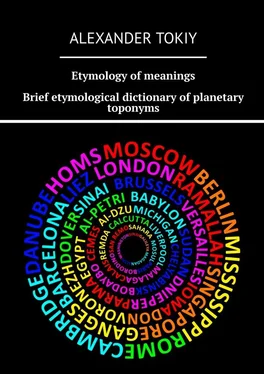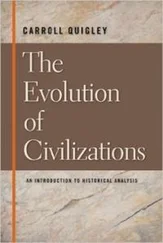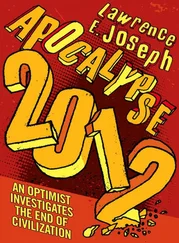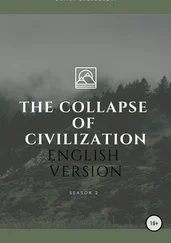Etymology of meanings. Brief etymological dictionary of planetary toponyms
At the origins of civilization
Alexander Tokiy
Translator Polina Mozzhukhina
© Alexander Tokiy, 2021
© Polina Mozzhukhina, translation, 2021
ISBN 978-5-0053-0497-1
Created with Ridero smart publishing system
⠀
⠀
⠀
⠀
Gentle reader!
We tried to translate this book from Russian into English, so as not to lose the semantic subtleties of the content. The book is written in Russian, but it could also be written in any other language, because all the languages of the planet grew out of one, common language, which is most clearly visible in the naming of the area or in toponyms.
Thousands years ago, distant ancestors marked their places of stay with sounds that accompanied their existence and evoked certain associations.
For example, when they drank from reservoirs, the sound “ms” appeared. In their minds this sound corresponded to the ability to quench the thirst, so the places where it could be done began named with this sound. So there were a large number of names of reservoirs or places close to the water that include this protoroot: the Moscow River, the Miass River, the Mississippi River, the Thames River, Mesopotamia, Lake Michigan, the city of Mosul, the Mezima River and hundreds of others.
Gradually, the sound “m” (the sound of food), which appears when mammals feed, disappeared from some names; only the sound “s” remained, the sound of flowing water, which retains its meaning “water” in different languages and included in the names of many other reservoirs\toponyms: Sudan, the Sura river, lake Issyk-Kul, the Seine river, the Seym river, the Svir river, the Siya river, the Sista river and others.
In some peoples, the sound “s” eventually “hissed”, so the names with hissing sounds appeared: the Chagra river, the Chaya river, lake Michigan, the Shari river, the Shaiga river, the Zhekan river and the ancient sickle became shekel.
Even more obviously protoroots are visible in the names of the mountains. If a person raises his head and pronounces some sounds simultaneously, the vowels – first of all the sound “a” – come out unhindered. But as soon as the trachea is bent, cutting off the air, there is the sound of “y” (“i”). From this movement of the head, two ancient protoroots were formed: “ay” is the movement up and “ya” is the movement down. Or simply: “ay” is at the top, “ya” is from top to bottom. So the sound “ay” entered the names of a large number of mountain peaks: Ay-Petri, Ay-Foka, Ay-Vita, Aykuayvenchorr, Aino, Aizu, Nantai, Ayoava, Sinai, Ohio, Altai and hundreds of others. The water frozen on the mountain tops became known as “ice” and the whiteness of the mountain slopes is “white” colour.
In turn, in the name of mountains that have both ascents and descents, you can find both protoroots at the same time: Sayan, Aya, Yokohama and others. Clearly protoroots can be seen and heard in the Japanese hieroglyph (山), which has the meaning “mountain” but which is pronounced as “Yama”, where we can not only hear, but also see the well – known protoroots “ay” and “ya” – up and down. The familiar words also speak about the downward movement: “yakor” (anchor) “yasno” (clear), “yama” (hole\pit), “Yaga” (a witch in Russian Folklore), “yagnyonok” (lamb), “yabeda” (sneak). In the vast majority of cases, the meaning of protoroots fully corresponds to the features of the landscape and keeps these secrets for many centuries.
I hope that you will be interested in learning the secret of the origin of not only ancient place names: Troy, Dardanelles, Caledonia, Baikal, London, Paris, Rome, Moscow, Washington and hundreds of others but also the meaning of the simplest words: ogon’ (fire), otets (father), Russkiy (Russian), pravda (truth), igemon (hegemon), man`yak (maniac) and others.
Enjoy this book.
Sincerely Yours, Alexander Tokiy
To the Descendants of Sisyphus
(instead of a Preface)
My ancestors went back to the ancient Greeks, who left mankind an incredibly rich gallery of symbolic meaning and intimate knowledge of mythological images. They inherited knowledge from the depths of centuries and created a fascinating and confusing world of heroes and gods. One of them was Sisyphus, the founder and king of Corinth, who tried to cheat death, for which he was condemned to the severe punishment by the gods – always lifting a heavy stone up the mountain. As soon as he reached the top, the stone would fall under its weight, and poor Sisyphus would come back for it and roll it up the mountain again and again. It became a symbol of painful but useless meaningless and fruitless labour and in the twentieth century French existentialists was raised to the banner of the absurdity of human existence.
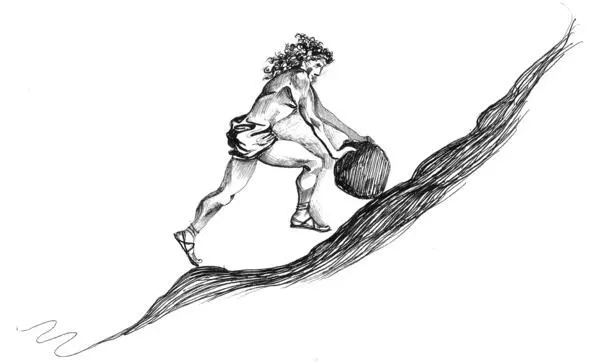
Everything is so obvious, but it is far from true. Only one intuition about the meaninglessness of “Sisyphean labour” goes back to the ancient “semantic” understanding of the myth of Sisyphus. The stone that he rolled up the mountain is actually the stone of knowledge. We reach extreme heights with the age, but everything is reset with our departure. There is only a stone at the foot of the mountain, waiting for the touch of new and young hands. The ancients understood the mechanisms of knowledge transfer well and they knew the main “enemy”—the loss of continuity, the absence of someone who will pick up the baton. No one learns from other people’s mistakes, preferring to make their own, repeatedly multiplying and distorting the original meanings.
Since ancient times, people have tried to put knowledge in a variety of forms: in words, fairy tales, legends, metaphors, hoping that these tips will help understanding and knowledge of the world. But the descendants of the ancient perceived “signals” as a fun puzzle, and were often understood literally, without hidden meaning. Abraham Maslow’s famous dictum that civilization is a form of struggle against entropy, the loss of cultural heritage, explains the difficulties that humanity has faced in passing on knowledge to the next generation best of all. This also applied to language – the main means of communication, the most subtle tool for transmitting information, with the slightest error of which meanings could be lost, changed and disappear.
The easiest way of it can be seen in the etymology, and especially in the interpretation of place names. This is an amazing legacy left to us in the names of localities – a legacy visible, audible, easy to understand and always rough to the touch. Thousands and thousands of years ago, our ancestors gave names to the places where they lived. The laws of the language development began with these names, with the primal concepts that I tried to discover during my life in the course of independent searches. I could be wrong in some ways, but I could not resist the temptation to “roll” this “toponymic boulder” on the mountain of knowledge. I hope you will be interested.
The soft sound “l’” or where does a hobby start?
Once in 1971, I returned from the army and got a job at Chelyabinsk television. I met a TV journalist, Samuel Gershuni. We went to the city of Zlatoust to shoot a video about the local watch factory. We lived in a hotel and spent long evenings talking about various topics. Samuel Matveyevich was a sociable man who liked to talk about his front life.
But one day we talked about his jewishness, biblical stories, and the languages which the ancient Jews spoken. It was the moment then I heard his explanation of the soft sound “el’”. We talked about the meaning of the word “Israel”, and Samuel Matveyevich explained that the soft sound “el’” means “God”, and the words “Israel’”, “Samuel’”, “Ariel’” are the names of various jewish tribes. For example, Israel is the God of the “Izra” tribe, and Michael is the God of the “Micah” tribe. Next we found words from other languages: for example, El’ Greco, El`brus, Hel`ius, Ol`ympus. My relatives – first of all my father and cousins – were Crimean Greeks and always emphasized that they were El`liny (Hellenes) And this name also begins with “el’”.
Читать дальше
